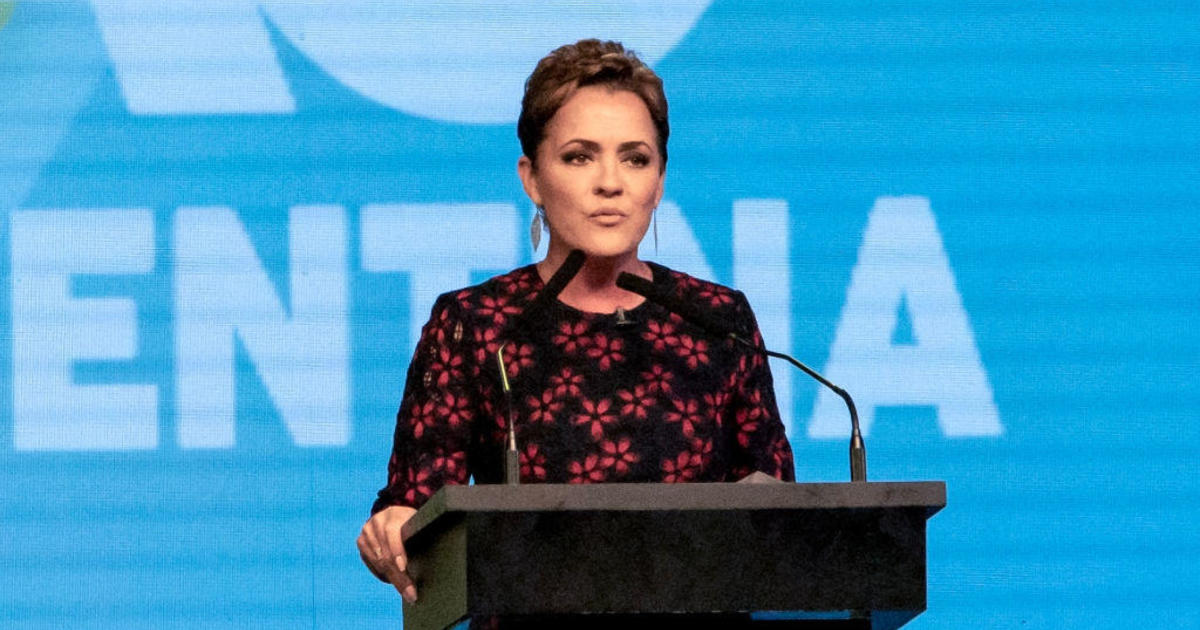President-elect Donald Trump has made a significant announcement by appointing Kari Lake as the director of Voice of America, the nation’s largest international broadcaster. This decision comes after Lake, a 55-year-old former TV news anchor in Phoenix and a fierce Trump loyalist, lost her bid for the Arizona Senate to Democratic Rep. Ruben Gallego in November. Despite facing setbacks in her political career, Lake’s alignment with Trump’s rhetoric and false claims about the 2020 election has earned her the president-elect’s trust to lead the government-funded media outlet.
Voice of America, a part of the U.S. Agency for Global Media, has a crucial role in broadcasting news internationally in 49 languages through radio, television, and online platforms. With an estimated audience of 354 million people per week, VOA has been a vital source of information and news dissemination since its inception in 1942. The agency employs around 2,000 individuals and operates with an annual budget of approximately $260 million, making it a cornerstone in the realm of international broadcasting.
In a statement posted on his Truth Social platform, Trump noted that Lake would collaborate closely with the upcoming head of the U.S. Agency for Global Media, whose appointment he plans to announce soon. This move signifies Trump’s intention to ensure that VOA reflects his administration’s perspective and messaging on a global scale. Lake’s enthusiastic embrace of Trump’s ideologies and her commitment to championing America’s achievements worldwide have positioned her as a key figure in reshaping the agency’s leadership.
Despite Lake’s nomination, her appointment as director of VOA is subject to Senate confirmation. This process will scrutinize her qualifications, experience, and ability to uphold the agency’s mission of providing accurate and unbiased news coverage to a diverse global audience. The Senate’s assessment will delve into Lake’s track record, including her past campaigns for governor and the Senate, where she echoed Trump’s unfounded claims of electoral fraud.
The U.S. Agency for Global Media has faced challenges to its editorial independence, particularly during Trump’s first term in 2020. The appointment of Michael Pack, a conservative filmmaker and ally of Steve Bannon, as CEO raised concerns about political interference and ideological bias within the agency. Pack’s decision to dismiss VOA journalists and restrict their visas underscored the fragility of editorial autonomy at the agency, prompting backlash from lawmakers and international observers.
Currently, John Lippman serves as the acting director of VOA, a role he has held since October 2023, while Amanda Bennett leads the U.S. Agency for Global Media as CEO. The transition of leadership at VOA marks a pivotal moment in shaping the agency’s future direction and its commitment to upholding journalistic integrity and impartiality. Lake’s appointment signals a shift towards aligning VOA’s editorial stance with Trump’s agenda, raising concerns about the agency’s credibility and independence.
In response to her nomination, Lake expressed her gratitude and enthusiasm for the opportunity to lead VOA, emphasizing her dedication to advancing the agency’s mission on a global scale. Her vision for VOA under her leadership underscores a commitment to highlighting America’s achievements and promoting its values worldwide. As she navigates the confirmation process and assumes her role as director, Lake will face scrutiny over her ability to uphold journalistic standards and ensure VOA’s editorial independence.
The appointment of Kari Lake as director of Voice of America marks a significant development in the agency’s leadership and its role in shaping international discourse. As she steps into this role, Lake will be tasked with steering VOA towards a new era of global communication and engagement, while navigating the challenges of political scrutiny and public perception. The implications of her appointment extend beyond the agency itself, reflecting broader trends in media governance and the complex interplay between political agendas and journalistic integrity.









